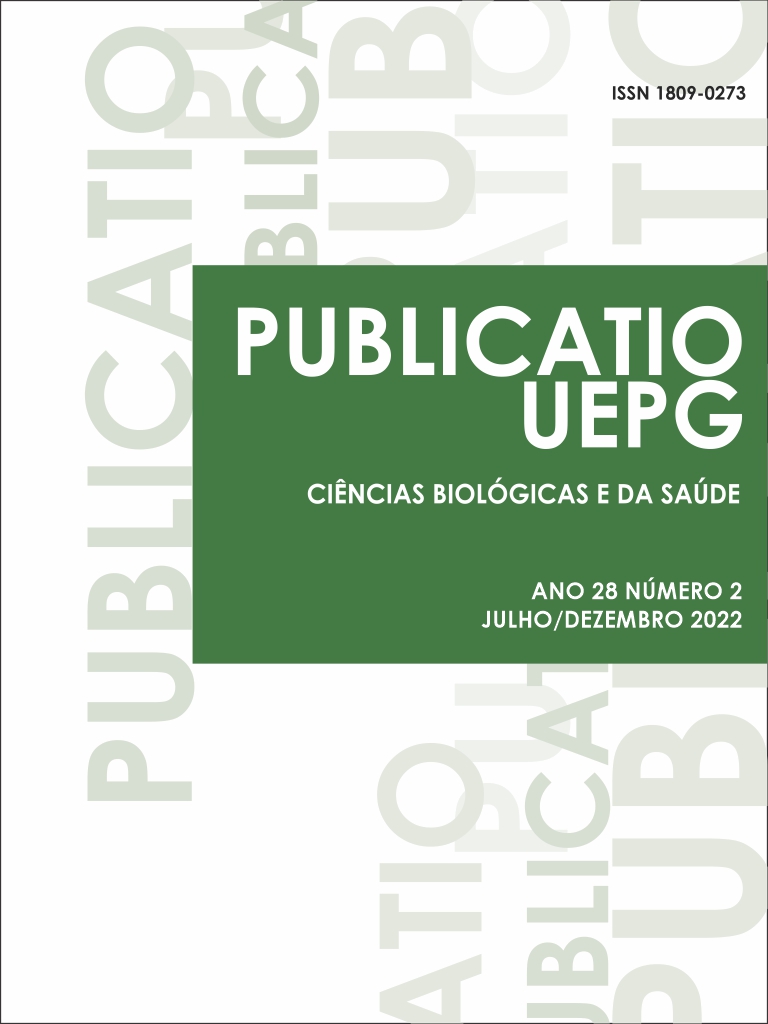Presence of domestic dogs in Conservation Units in Parana, Brazil
DOI:
https://doi.org/10.5212/Publ.Biologicas.v.28.i2.0005Abstract
The presence of invasive species in forests is one of the main causes of biodiversity loss, and even protected areas have suffered from the introduction of these species. The domestic dog (Canis lupus familiars) has acted as an invasive species, bringing aggravating consequences for its presence in the natural environment, as they return its wild state, which can lead to the decline of populations of various native animals, whether by hunting, transmitted diseases or by driving away. Given this scenario, this study aimed to highlight the presence and risks caused by domestic dogs to native fauna in four Fully Protected Conservation Units in the central region of Paraná, namely: Municipal Ecological Station of Palmital; Reinaldo Petrechen Municipal Ecological Station in Nova Tebas, Cachoeirinha de Boa Ventura Municipal Ecological Station in São Roque and Colombo Municipal Ecological Station in Mato Rico. To carry out this study, the results obtained from the database sampling of the survey of medium to large mammals carried out in the four UCs, which took place from August 2016 to September 2019, were analyzed. The results obtained evidenced the presence of Kennels in all UCs, in relation to the frequency of the invasive species in relation to other species of wild mammals, the lowest was obtained in the EEM Palmital (5.5%) and the highest in the EEM Reinaldo Petrechen (10.8%), being EEM which also obtained the highest number of dog registrations and EEM Palmital the lowest. In addition to the domestic dog, the presence of four more exotic species was obtained (Sus scrofa domesticus, Bos taurus, Lepus europaeus and Felis catus). The study demonstrates the need for efforts to reduce the presence of invasive species in the PAs and the need to join efforts with Station managers, the surrounding community and researchers, since the National System of Conservation Units (SNUC), which prohibits entry of exotic species.
Downloads
Downloads
Published
Issue
Section
License

Este obra está licenciado com uma Licença Creative Commons Atribuição 4.0 Internacional.
Esta licença permite que outros distribuam, remixem, adaptem e criem a partir do seu trabalho, mesmo para fins comerciais, desde que lhe atribuam o devido crédito pela criação original. Este posicionamento está de acordo com as recomendações de acesso aberto da Budapest Open Access Initiative (BOAI).


